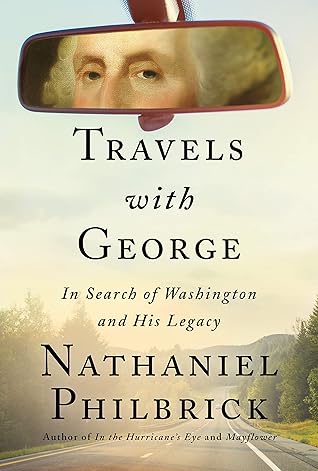More on this book
Community
Kindle Notes & Highlights
Read between
October 9 - October 22, 2023
Bob Belvin, the longtime director of the New Brunswick Free Public Library. Whenever I had a question, Library Bob would pass the query along to the researcher on his staff, who would text him the answer. Because Library Bob’s ringtone was a recording from The Princess Bride of Wallace Shawn shouting, “Inconceivable!” this made for a delightfully raucous historical tour of New Brunswick.
Despite all her misgivings and regrets, she was “determined to be cheerful and to be happy in whatever situation I may be, for I have . . . learnt from experience that the greater part of our happiness or misery depends upon our dispositions, and not upon our circumstances; we carry the seeds of the one or the other about with us, in our minds, wherever we go.”
Everything the president touched, sat on, or even looked at while at the Munroe Tavern (including the metal loop to which he hitched his horse) has been saved like pieces of the true cross.
“It being contrary to law and disagreeable to the people of this state . . . to travel on the Sabbath day,” Washington was forced to spend two nights at the Perkins tavern—“not a good one,” he recorded in his diary. With nothing else to do, he attended both the morning and the evening services at the Congregational Meetinghouse and “heard very lame discourses from a Mr. Pond.”
It was the beginning of the political divide that would soon consume the country as rancor and partisanship quickly rose to the fore in the House and the Senate.
the contention over Hamilton’s budget proposals, as well as the question of where to locate the nation’s capital, reached a crisis point. Thomas Jefferson described it as “the most bitter and angry contest ever known in Congress before or since the union of the states.”
It’s been estimated that 60 percent of the slave-trading voyages launched from North America originated in Rhode Island; in some years it was as high as 90 percent.
Newport’s biggest year in slave trading was 1807, twenty years after the supposed ban.
All possess alike liberty of conscience and immunities of citizenship. It is now no more that toleration is spoken of, as if it was by the indulgence of one class of people, that another enjoyed the exercise of their inherent natural rights. For happily the government of the United States, which gives to bigotry no sanction, to persecution no assistance, requires only that they who live under its protection should demean themselves as good citizens, in giving it on all occasions their effectual support.
As Jefferson was quick to point out, a certain amount of turmoil is essential in a free society. Protests had sparked the American Revolution, and protests would continue to define the United States as each generation has struggled to live up to the ideals set forth in the Declaration of Independence. But as Washington had come to appreciate during his first term as president, aspirations alone don’t create workable change.
But planting and harvesting the rice were just as backbreaking—a grueling regime that reduced an enslaved person’s life expectancy by decades.
Even worse was the alternative low-country crop, indigo, a plant that produces a blue dye. Wally said the chemicals used to manufacture the dye were so toxic that an indigo worker might be dead after just five years in the trade.


